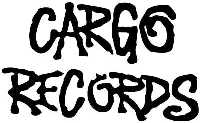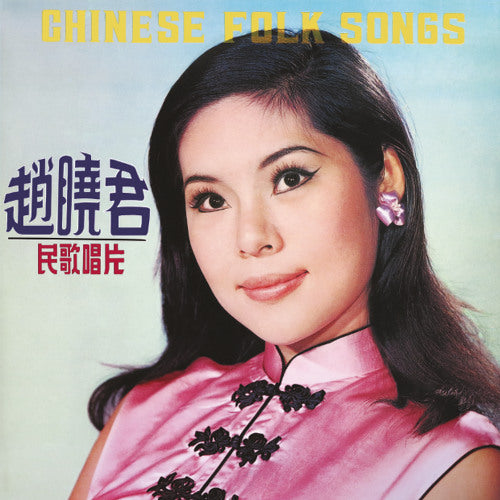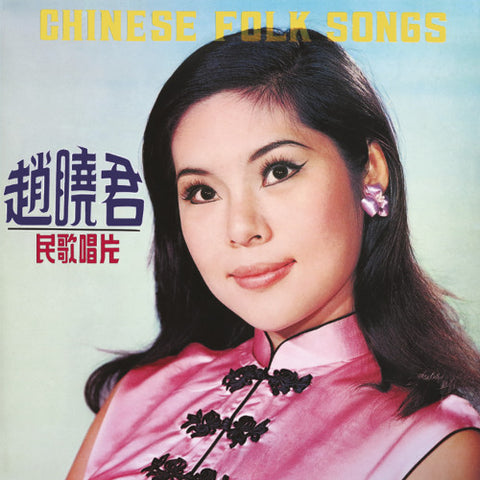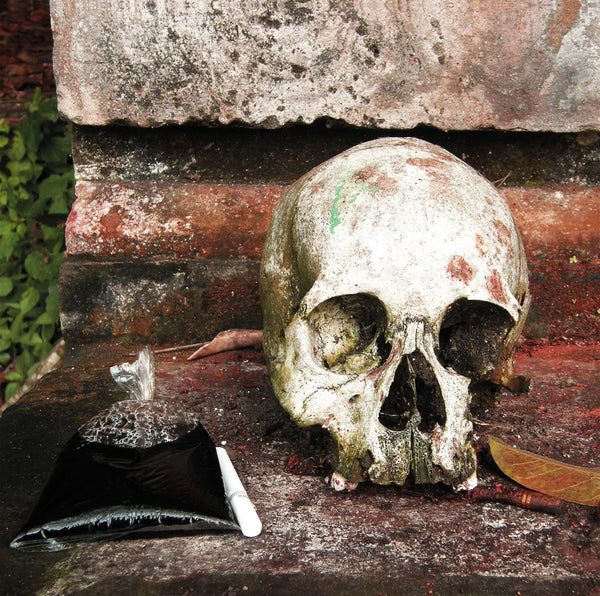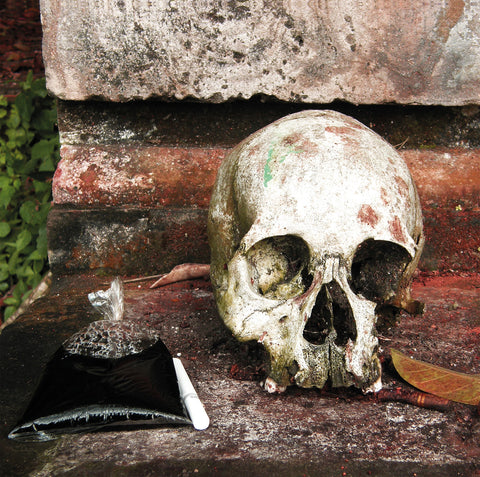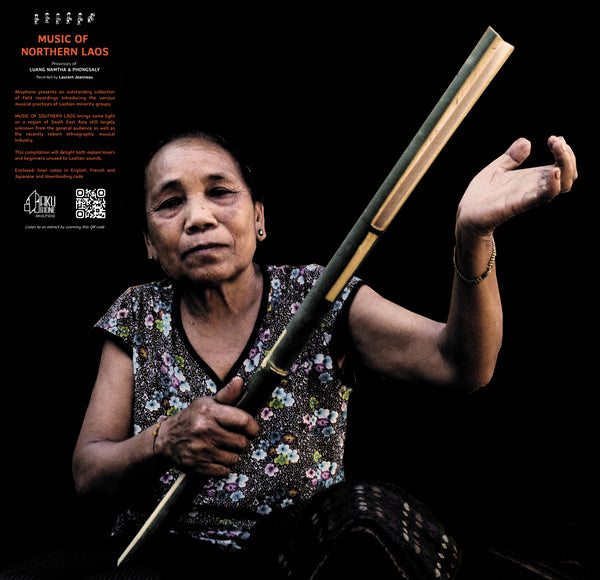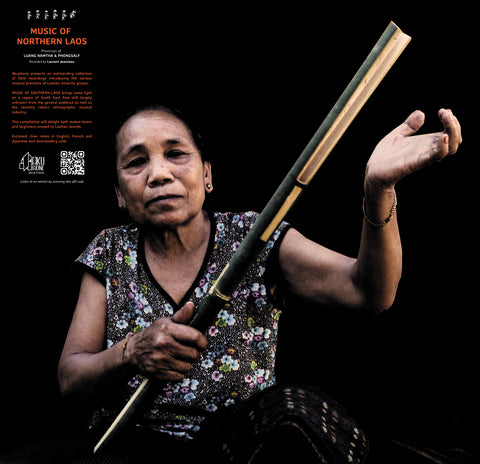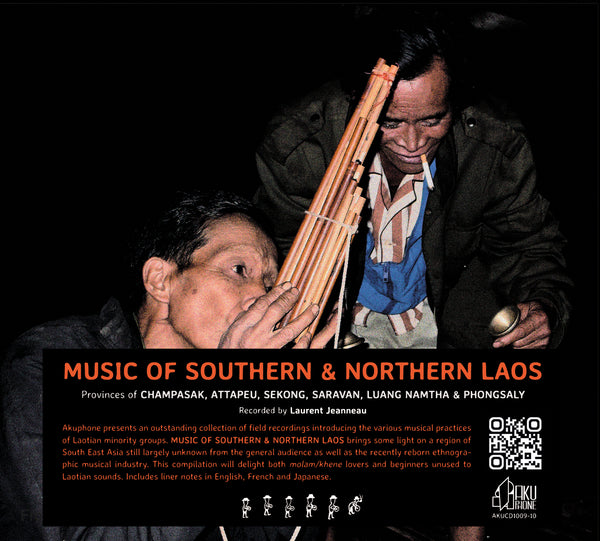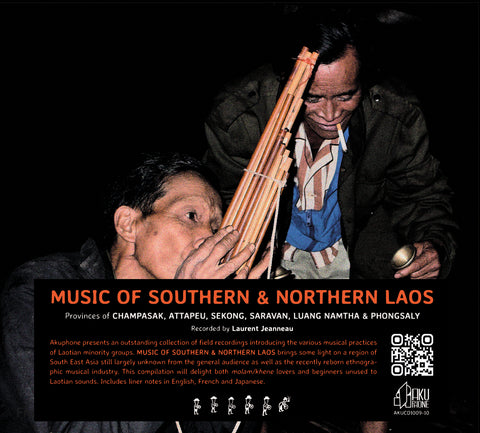Your cart is currently empty!
Akuphone
Various Artists 'The Golden Era of Sinhalese & Tamil Folk-pop Music'
£17.99
Akuphone
Various Artists 'The Golden Era of Sinhalese & Tamil Folk-pop Music'
£17.99
While India and Pakistan's respective musical heritage had already aroused interest among foreign audiences, Sri Lanka still remained one of the rare South Asian countries whose folk-pop music from the 1960-70s had not yet been compiled abroad. This gap is now to be filled with Sri Lanka.
The Golden Era of Sinhalese and Tamil Folk-Pop Music.
This double compilation is conceived as a panorama presenting the diversity of Sri Lankan musical styles between 1967 and 1979 through 30 titles. It comes along with a booklet depicting the country's historical, cultural and musical context.
As a deeply multicultural society, largely based on religious affiliations (Buddhist Sinhalese, Hindus Tamils as well as Muslim and Christian minorities) Sri Lanka possesses a great variety of musical traditions and influences which have been shaped by centuries of regional and international exchanges. If Sri Lankan music is undeniably part of South Asian musical culture, its heritage is also a product of almost five centuries of European imperialism.
Coming from an original form of creolization, as defined by Edouard Glissant, the Baila bears the trace of both the African diaspora and the Iberian influences on the country. The Kaffirs - African slaves deported by the Portuguese - introduced African sounds while the Portuguese brought their musical traditions and instruments (cavaquinho, mandolin, violin, tambourines).
The baila, which is reminiscent of Caribbean calypso, became the ultimate popular music and dance, performed on every festive occasion. Although much more recent but similarly popular, the sarala gee (also called light classical music) is a combination of Indian inspired music, either classical or close to Bollywood productions, with Sinhalese lyrics and a slight pop accent.
In the early 1960s, the country's musical scene was very dynamic, partly under the influence of the music label Sooriya Records. Its founder Gerald Wickremesooriya was determined to put into light proper Sri Lankan music in opposition to poor copies of standards of the times. He then invented the « new sound of Ceylonese pop » with the help of a few composers, musicians and singers. Very quickly, the label's hits came one after another.
They were performed during concerts organized by the label, the 'Sooriya Shows', or broadcasted on Radio Ceylon, which remained the number one radio for a long time. Sooriya Records'catalogue reflected the diversity of Sri Lankan musical styles of the times: Anglo-Saxon influenced Sinhalese pop stood next to the baila or the sarala gee. Traditional instrumental music, characterized by large drum ensembles called hevisi, or even nurthy music originating from theatrical tradition, were also edited by the label. This mosaic of musical styles is to be found in Sri Lanka.
The Golden Era of Sinhalese and Tamil Folk-Pop Music. This selection, which is mainly constituted of titles from Sooriya Records'catalogue, presents the most popular artists of the times: virtuoso sitar and violin player Pandit Amaradeva, singer Indrani Perera, Paul Fernando and his lively baila rhythms, the psychedelic touch of Tamil producer Paramesh, or even the Sinhalese pop of both Clarence Wijewardena and the Golden Chimes and Baby Shiromi.
Tracklisting:
1. Egoda Gode
2. Soken Pala Ne
3. Gamen Liyumak
4. Naan Unnai Thedum
5. Instrumental Baila Medley
6. Netha Giya Hematana
7. Kaffiringha
8. Ceremonial Drums
9. Jeevithe Vasanthaye
10. Anbil Valarnthai
11. Pinna Mal
12. Mama Bohoma Bayauna
13. Vairodi Wannama
14. Handa Haami
15. Goyam Gee
16. Eka Dawasak
17. Mindada Heesara
18. Roshi
19. Sigiriya
20. Deepa Tupe Vihare
21. Drum Orchestra
22. Gavaskar The Century Maker
23. Bolanda Katha
24. Sinidu Sudu Muthu
25. Malli
26. City Of Colombo
27. Durakathanaya
28. Amma
29. Kimada Naave
30. Perakumba Davasa
The Golden Era of Sinhalese and Tamil Folk-Pop Music.
This double compilation is conceived as a panorama presenting the diversity of Sri Lankan musical styles between 1967 and 1979 through 30 titles. It comes along with a booklet depicting the country's historical, cultural and musical context.
As a deeply multicultural society, largely based on religious affiliations (Buddhist Sinhalese, Hindus Tamils as well as Muslim and Christian minorities) Sri Lanka possesses a great variety of musical traditions and influences which have been shaped by centuries of regional and international exchanges. If Sri Lankan music is undeniably part of South Asian musical culture, its heritage is also a product of almost five centuries of European imperialism.
Coming from an original form of creolization, as defined by Edouard Glissant, the Baila bears the trace of both the African diaspora and the Iberian influences on the country. The Kaffirs - African slaves deported by the Portuguese - introduced African sounds while the Portuguese brought their musical traditions and instruments (cavaquinho, mandolin, violin, tambourines).
The baila, which is reminiscent of Caribbean calypso, became the ultimate popular music and dance, performed on every festive occasion. Although much more recent but similarly popular, the sarala gee (also called light classical music) is a combination of Indian inspired music, either classical or close to Bollywood productions, with Sinhalese lyrics and a slight pop accent.
In the early 1960s, the country's musical scene was very dynamic, partly under the influence of the music label Sooriya Records. Its founder Gerald Wickremesooriya was determined to put into light proper Sri Lankan music in opposition to poor copies of standards of the times. He then invented the « new sound of Ceylonese pop » with the help of a few composers, musicians and singers. Very quickly, the label's hits came one after another.
They were performed during concerts organized by the label, the 'Sooriya Shows', or broadcasted on Radio Ceylon, which remained the number one radio for a long time. Sooriya Records'catalogue reflected the diversity of Sri Lankan musical styles of the times: Anglo-Saxon influenced Sinhalese pop stood next to the baila or the sarala gee. Traditional instrumental music, characterized by large drum ensembles called hevisi, or even nurthy music originating from theatrical tradition, were also edited by the label. This mosaic of musical styles is to be found in Sri Lanka.
The Golden Era of Sinhalese and Tamil Folk-Pop Music. This selection, which is mainly constituted of titles from Sooriya Records'catalogue, presents the most popular artists of the times: virtuoso sitar and violin player Pandit Amaradeva, singer Indrani Perera, Paul Fernando and his lively baila rhythms, the psychedelic touch of Tamil producer Paramesh, or even the Sinhalese pop of both Clarence Wijewardena and the Golden Chimes and Baby Shiromi.
Tracklisting:
1. Egoda Gode
2. Soken Pala Ne
3. Gamen Liyumak
4. Naan Unnai Thedum
5. Instrumental Baila Medley
6. Netha Giya Hematana
7. Kaffiringha
8. Ceremonial Drums
9. Jeevithe Vasanthaye
10. Anbil Valarnthai
11. Pinna Mal
12. Mama Bohoma Bayauna
13. Vairodi Wannama
14. Handa Haami
15. Goyam Gee
16. Eka Dawasak
17. Mindada Heesara
18. Roshi
19. Sigiriya
20. Deepa Tupe Vihare
21. Drum Orchestra
22. Gavaskar The Century Maker
23. Bolanda Katha
24. Sinidu Sudu Muthu
25. Malli
26. City Of Colombo
27. Durakathanaya
28. Amma
29. Kimada Naave
30. Perakumba Davasa
v


